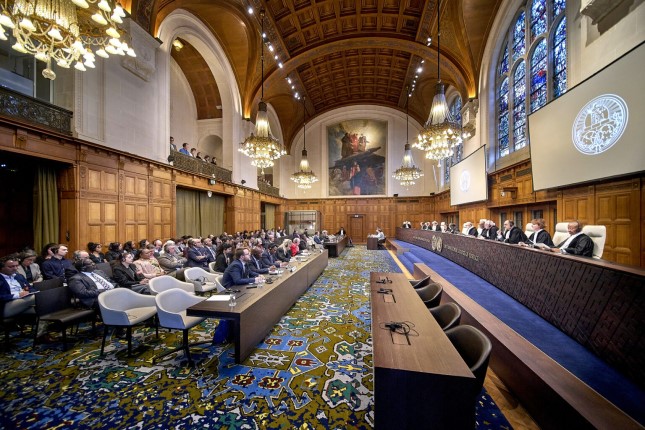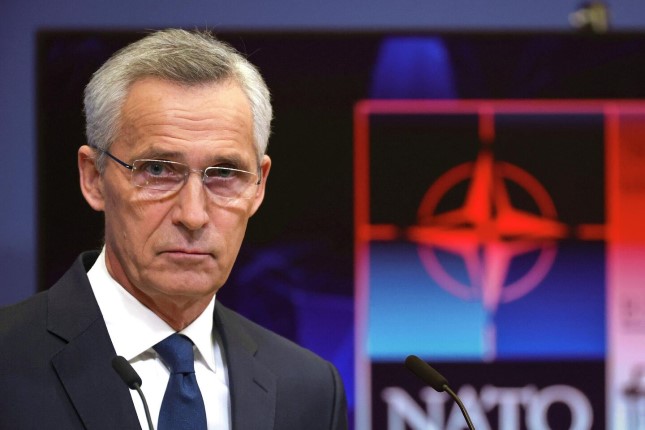Leaders of Britain’s Conservative Party have joined in the race to fill the office of the party’s leader. The winner will automatically become the Kingdom's next prime minister. That is how European parliamentary democracy works: in a country of 67 million people, the nation’s future head of state is chosen by just a measly 200,000 registered members of the ruling party. Take Boris Johnson, for example. He had gotten to be the country's prime minister after winning just 92,000 Conservative votes, and he will remain in office until the multi-stage procedure for electing a new leader grinds to a close.
This is a process that typically takes a few months to complete. Once the contenders have openly announced their bid to run for prime minister, the party holds a series of secret votes among its MPs. After each round, the candidate with the lowest number of votes is taken off the contenders' list. And it goes on like this until only two candidates are left, at which point all the card-carrying and dues-paying Britons will finally be able to vote for one of them in a runoff election.
The current infighting within the party has been accompanied by an intense smear and mud-slinging campaign, something that had not been common in British politics until now. But perhaps this is the only way it can be now that Boris Johnson, as the Economist aptly put it, has turned the country into a circus. And yet, the prospect of messy wrangling does not seem to put the Tories off. Close to 15 contenders have entered the race for party leadership, although this number can change at any moment. To officially be in the race, each candidate would have to garner the support of at least eight other Conservative MPs.
The most embarrassing evidence produced so far has been brought against the 42-year-old Rishi Sunak, the former Chancellor of the Exchequer (a role equivalent to that of a finance minister). A video taken during young Sunak’s final year at Oxford University surfaced the other day, showing him boasting of having friends who are aristocrats and emphasizing that he does not have working-class friends. This seems to be the principal angle of attack against Rishi Sunak: that he is a rich snob who has no idea of how ordinary Britons live.
This narrative is further reinforced by the fact that Sunak’s wife is a multimillionaire who has been mired in a massive scandal. As it came to light a few months back, despite her living with her husband in Downing Street, as is customary for Chancellors with spouses, she paid for all of her exorbitant taxis in her native India. Her tax avoidance scheme was exposed, and the back taxes were eventually paid in Britain. Even so, being portrayed as someone who's super rich could potentially cost Sunak his country's leadership bid. As a further complication, it was revealed that the ex-Chancellor had, until recently, been a holder of US citizenship. This might also explain why the US finds Sunak the most suitable candidate for their purposes.
Some believe that behind the campaign to discredit Sunak is the team of 46-year-old "mad, bad and dangerous" Liz Truss, the country’s current foreign secretary. According to preliminary estimates, she currently has the best chance of winning the race to become the party leader and the country’s next prime minister. The bookmakers are even taking bets on her winning, offering the odds of 4 to 1.
Liz Truss is a seasoned politician and a veteran minister, having served under various prime ministers since 2012. She has always been an ardent supporter of Boris Johnson, looking up to him on many occasions. Regarding foreign policy, Truss, known for her hawkish stance, is expected to continue competing with Washington over their control of Ukraine if she succeeds in her power bid. Domestically, the head of Britain’s Foreign Office has been lobbying for tax cuts and is against the policy of gender self-identification without evidence of a medical diagnosis.
Her opponents accuse Truss of putting her interests above those of her nation, citing the fact that after Boris Johnson's abrupt resignation, she cancelled an important meeting with her Russian counterpart Sergei Lavrov on the sidelines of the G20 ministerial meeting in Jakarta and chose to hastily depart for London instead to prepare her candidacy for the nomination.
In another blow, some serious incriminating evidence was also used recently against another Conservative Party member, Nadhim Zahawi, whose wealth could rival Rishi Sunak. It was disclosed that Zahawi had offshore accounts that he could use for tax evasion purposes.
That said, his origins could play in Zahawi's favour. If by analogy with the American dream, there were a British one, Zahawi would have been its shining embodiment. A son of Iraqi refugees who had fled Saddam Hussein’s regime to Britain, Zahawi established himself as a first-rate entrepreneur by creating a thriving real estate business and amassing a sizeable fortune.
According to the press, Nadhim Zahawi’s performance as Education Secretary in Boris Johnson’s government was exemplary. Just one day before the prime minister announced his resignation, Zahawi had been appointed Chancellor of the Exchequer. Upon his appointment, he said he would soon make a speech on the country's state of the economy but instead published a letter urging Johnson to resign just a few hours later. As it turned out, Zahawi had developed this insidious plan well and even hired political consultants to help him with that. However, his resourcefulness was not duly appreciated by everyone in the Conservative Party.
Of all the contestants in the race for party and country leadership, the most obscure candidate is Penny Mordaunt. Her only claim for fame and the brightest splash in her biography has so far been her appearance on Splash!, a TV show about celebrity divers. Even the potentially compromising information about her is pretty bland, too. She was caught up in controversy over unwittingly featuring a convicted murderer in her campaign video. But what is much worse for Mordaunt as a contender for the prime minister's office is that no one could really tell what her policies would be. Nevertheless, Mordaunt is viewed as a highly ambitious woman with a military background.
The list of contenders also includes Sajid Javid, the ex-Secretary of State for Health and Social Care, who was forced to resign from his post in the fallout of controversy around a sexual misconduct scandal within the Conservative Party. For this, the Guardian nicknamed him "the original Brutus, except for the one Shakespeare wrote a play about”.
After his resignation, Javid explained that hearing a sermon on honesty during a traditional prayer breakfast in Parliament had prompted him to act. Javid had already run against Johnson in the previous Conservative Party leadership race. And although Britain's ex-Health secretary is widely considered one of the most experienced players in the game, his prolonged staunch support of his former boss Boris Johnson makes his chances of winning less likely.
There are quite a few other contenders for Tory leadership who have a military background or are otherwise connected with the armed forces. A case in point is Tom Tugendhat, one of the race's favourites, who had served as an intelligence officer during the wars in Iraq and Afghanistan, a man with a spotless background. When asked about the naughtiest thing he had ever done, Tugendhat replied: “I invaded a country once”. Commenting on the fall of the pro-Western regime in Kabul in 2021, he mused that "this does not need to be defeat, but at the moment, it damn well feels like it".
Jeremy Hunt, who once served as Britain's Foreign Secretary, is a standout of the contenders who are known outside the UK. An old-school politician, he was the only leadership contender who openly opposed Brexit. There is a chance that he may be supported by those conservative MPs who have grown fed up with the unpredictable buffoonery at the top and would rather prefer to see at the party’s and the nation’s helm someone prepared to deal with the country's problems and affairs competently and without much fuss.
Britain’s political analysts seem to agree that the current party leadership race has so far failed to produce a front-running favourite, as was the case with Boris Johnson's bid, which is putting the Conservative Party’s MPs before a difficult choice. In the meantime, the developments in Britain remain the subject of keen attention in Brussels, where they have reasons to believe that the person who succeeds Boris Johnson will be even harder to come to terms with.
One satirical magazine has recently published a piece presenting its forecast of the possible outcome of the fight for the prime minister's office. According to it, Boris Johnson will be succeeded by one of five types of creeps: a common creep, an old-fashioned creep, an inconspicuous creep, a cunning and dangerous creep, or Liz Truss, an extraordinary kind of creep.

































